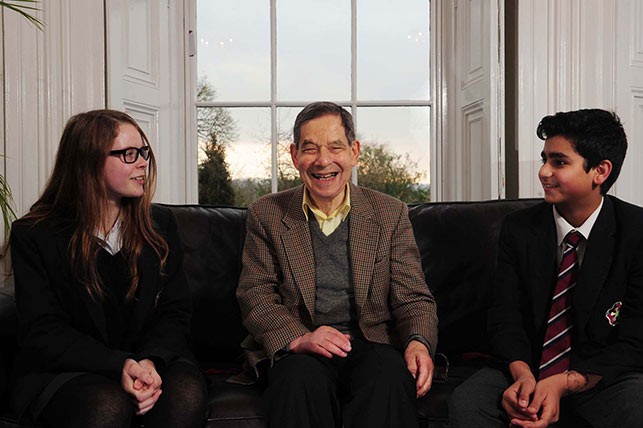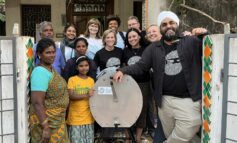King Edward’s School in Bath held a Holocaust education day yesterday, to commemorate last Thursday’s 70th anniversary of the liberation of Auschwitz.

This enabled Year 9 pupils to meet with a Holocaust survivor, Mr Rudi Oppenheimer, and presented pupils with the opportunity to empathise and to understand the story of an individual.
One pupil remarked that “it made it more personal” and another commented that “it made me very grateful for what I have”.
All pupils in Year 9 explored different aspects of anti-Semitism and the Holocaust in sessions throughout the morning, as well as listening to the moving testimony of Mr Oppenheimer in the afternoon, following which they had the opportunity to ask questions inspired by his life story and the lessons they had learnt throughout the day.
As well as the content of the day’s relevance to both History and Religious Studies work, the day (which was also run in 2014) aims to motivate the pupils to speak out against intolerance and consider their responsibilities as citizens.
The History and Religious Studies departments at King Edward’s are proud, as part of their stimulating curricula, to offer a wide range of opportunities for pupils to learn outside of the classroom and are incredibly grateful for the support that they receive from the Holocaust Educational Trust in their teaching and learning.
Members of the school have also been involved in the Holocaust Educational Trust’s Lessons from Auschwitz Project.
Through this project, sixth form pupils and their teachers take part in two afternoon seminars in the UK and a one day visit to the former Nazi extermination camp of Auschwitz-Birkenau.
Last Year, two members of Year 13, Mimi Robson and Molly Buxton, along with Mr Jim Pendred (History Teacher), were fortunate enough to take part in the programme and are now ambassadors of the project with the responsibility to pass on the lessons in the school and wider community.
Mr Oppenheimer, who visited the School, was born in Berlin in 1931 and lived there until he was four years old.
His family moved to Holland after his father transferred to the Amsterdam branch of Mendelsohn Bank.
In 1943 Rudi and his family were rounded up and sent to the transit camp, Westerbork, before being deported to Bergen-Belsen, in Germany in 1944.
Tragically, Rudi’s mother and father both fell ill and died at the camp.
Rudi and his brother and sister survived their internment and left on the last train to leave Bergen-Belsen. They were finally liberated by the Red Army and moved to England to live with relatives.



